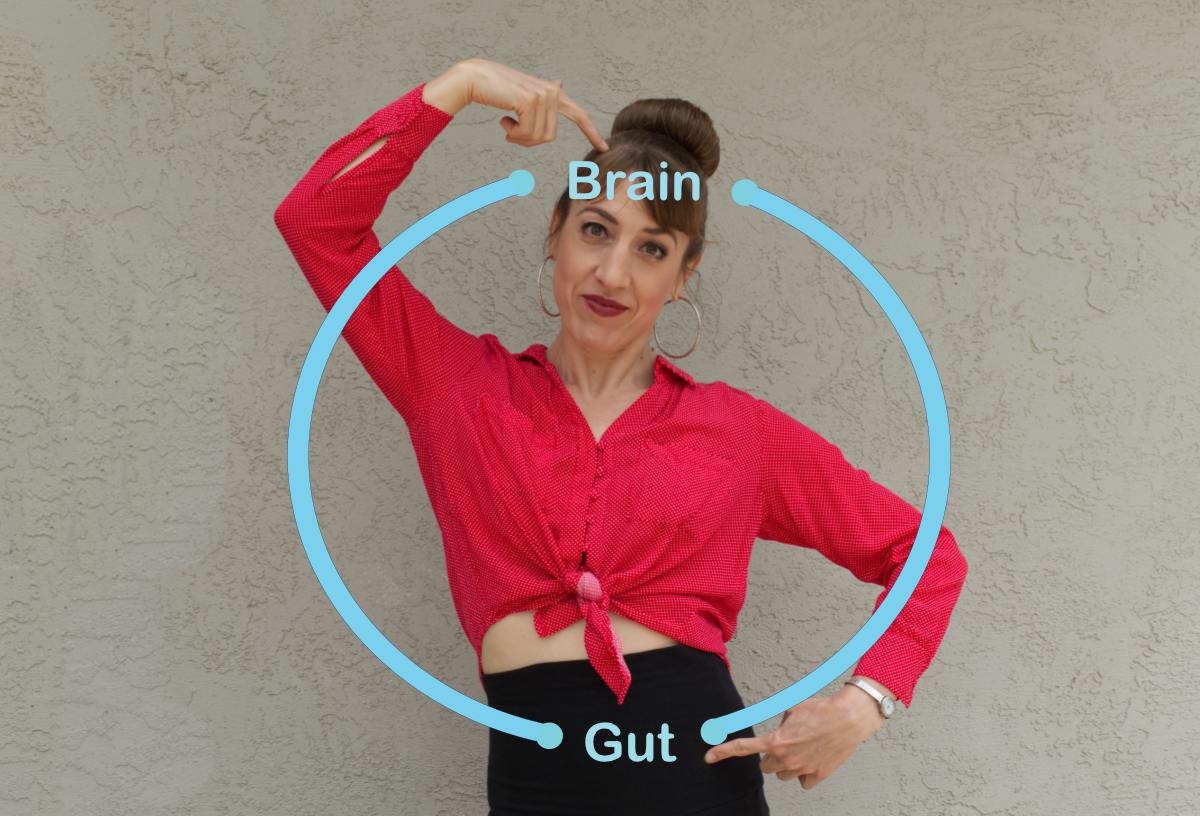Healing from Stress: Creating Awareness about the Brain-Gut Connection

 Photo Credit: LightYourSparkle.lifeWritten by Casey Hersch, MSW, LCSW
Photo Credit: LightYourSparkle.lifeWritten by Casey Hersch, MSW, LCSW
May 2021 issue
Published at Taste for Life Magazine
This story originally appeared on Taste for Life
Every day, our guts and minds are busy having hidden conversations. Normally, we don’t care about the details of those conversations. However, according to Emeran Mayer, MD, a gastroenterologist, neuroscientist, and research professor at University of California, Los Angeles, we should pay attention to the communication occurring in our brain-gut-microbiome axis—our health and emotional well-being may depend on it.
Despite the prevalence of digestive problems, irritable bowel syndrome, and inflammatory bowel disease, many people lack awareness of the connection between stress, trauma, adverse childhood experiences, and their gut health, Dr. Mayer says. But when patients understand how “emotions play out in the theater of their guts,” he says they look at their symptoms or disease differently and can learn to manage aspects of their conditions rather than feeling like passive victims of the next flare or reoccurrence.
Dr. Mayer’s book The Mind-Gut Connection, published in 2016, makes the science of the brain-gut-microbiome relationship easily digestible. His forthcoming book, The Gut-Immune Connection ($27.99, HarperWave, 2021), continues to educate people on how to be proactive with their health.
Connecting The Past to The Present
Events that take place during the first 1,000 days of life, what Dr. Mayer calls a key developmental window, are “essential for programming the gut microbiome and its interactions with us (the host and cells in the gut).” Many things a pregnant woman “does, eats, thinks, feels, and is angry about will influence that development,” he says.
The first 18 years of life comprise another key developmental window. Adverse childhood experiences (ACEs) during this time affect the programming of the brain-gut-microbiome axis. Stressful and traumatic events can include more subtle forms, such as verbal abuse, rejection, and marital discord of parents, says Dr. Mayer.
Stress affects gut contractions; we can all relate to having constipation or diarrhea when stressed. But stress also affects gut permeability and can make microbes more aggressive toward the gut. The communication between the brain-gut-microbiome axis influences hundreds of body pathways, and when ACEs drive early programming, those signals can lead to painful and debilitating symptoms.
“These factors in the brain exert their influence through the autonomic nervous system... regardless if you are consciously aware of it or not,” Dr. Mayer says. “And a very important step to change it is to become aware of it.”
Changing Early Programming
Although finding the best approach to intervene in the communications between the brain, gut, and microbes might seem overwhelming, trauma-informed approaches offer a great place to start. Dr. Mayer embraces an integrative approach to counteract or mend some of the damage from early programming, including a combination of mind-based/emotion-focused interventions, diet (largely plant-based), and pharmacological options.
The focus, he suggests, should be on methods that use the body or mind to send signals to the brain to communicate safety and decrease threats. For people with childhood trauma, Dr. Mayer recommends exploring mindfulness-based stress reduction techniques, cognitive behavioral therapy, stress management, and abdominal breathing. He maintains an open mind when his patients find other individualized ways to calm their minds and bodies and reduce activation of the sympathetic nervous system.
Dr. Mayer’s integrative approach to health, open-mindedness, and belief that patients are some of his greatest teachers, models an ideal interaction between patients and doctors. Among these types of positive interactions, the gut and nerves calm down. After all, one of the best ways to reduce stress is to surround ourselves with people and professionals who honor and respect us for who we are.
Trauma-informed educator and somatic experience practitioner Hala Khouri offers other techniques to help people calm their nervous systems and break patterns of responding to stress in her book, Peace from Anxiety: Get Grounded, Build Resilience, and Stay Connected Amidst the Chaos ($17.95, Shambhala, 2021). Through holistic body-oriented approaches, Khouri shows ways to self-regulate by feeling grounded, centered, and in the present. She encourages people to identify their rituals of connection, such as dance, art, traveling, and spiritual practices.
“When we don’t feel connected to something bigger than our pain, our pain overcomes us and we focus more on strategies to avoid pain rather than embracing life to its fullest,” Khouri says.
Watch The Interviews
The Mind and Gut Stress Connection with Dr. Emeran Mayer
Hala Khouri Helps Us Find Peace from Anxiety
Sources:
“Adverse childhood experiences increase risk for chronic diseases . . . ” by Veronique Mead, www.acesconnection.com, 7/18/19
Casey Hersch, MSW, LCSW, is a licensed clinical social worker, author, and founder of Light Your Sparkle. She specializes in integrative treatment models for chronic illness. Inspired by her own struggles with autoimmune illnesses and trauma, she educates about empowerment and how to build individualized healing plans.